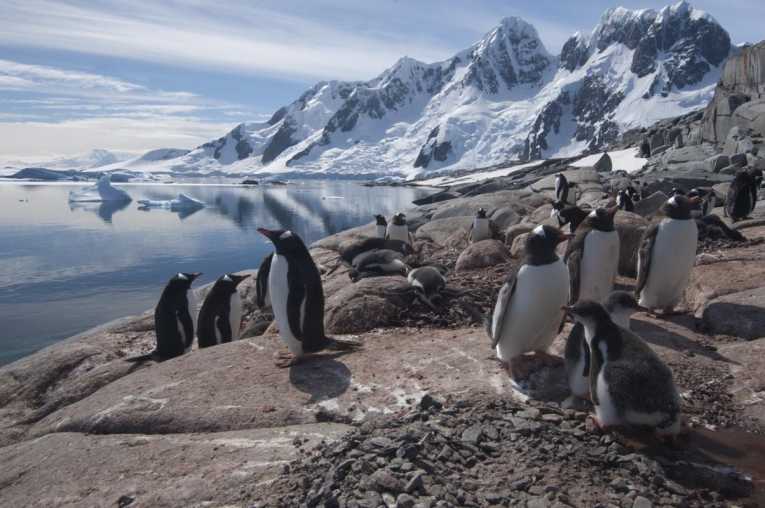Image Credit: Louise Murray. Adelie penguin colony on the West Antarctic peninsula.
Antarctic penguin numbers have more than halved since the 1980's, in tandem with their favourite food. Krill densities are down almost 80%, largely due to climate change reducing winter ice cover in this fast-warming region.
Wayne Trivelpiece, an Antarctic seabird specialist from the Southwest Fisheries Research Division in La Jolla, California has been studying the Adelie and Chinstrap penguins in the west Antarctic peninsula since 1976 and has visited the same colonies almost every year since, in a 35 year study. 'What is most surprising to me, is that such seemingly small changes in temperature can have such massive effects on the penguins, seals and whales that live in the Antarctic and depend on krill as a food source,' he said, 'Climate change is having a traumatic effect on penguin populations.
Both species of penguins thrived between the 1930's and the 1970's, but numbers started to fall in the eighties before a precipitous drop in the late 1980's, and are still declining. 'We can see a clear link between winter sea ice cover upon which krill depend and penguin populations. Krill need the ice to feed on algae that live on its under surface. No ice, and a year's generation of krill disappear,' he explained. Krill densities are down 80% in the area, and penguin youngsters are most at risk of starving. Thirty years ago 50% of fledglings would make it through to breeding age, now barely 10% do so. It is not just climate change that is making survival difficult for the penguins, though it is by far the most important contributor to their demise. Species that man almost extirpated in the last century such as fur seals have rebounded and now number 3-4 million. Krill feeding baleen whales - humpbacks and fin whales are also recovering and both the seals and whales compete with the penguins for food.
The krill fisheries harvest is also on the increase, from 51,000 tonnes in 2002, to over 200,000 tonnes in 2010. The fishery is probably peripheral to overall krill density for now, but that could change as the access to krill in this winter fishery is eased due decreasing sea ice. Omega-3 krill oil is hugely profitable and in increasing in demand as a dietary supplement, so fishing pressure is expected to increase. A fast growing krill fishery will further endanger this fragile ecosystem. The study is published in the Proceedings of the National Academy of Sciences on 11 April 2011.










